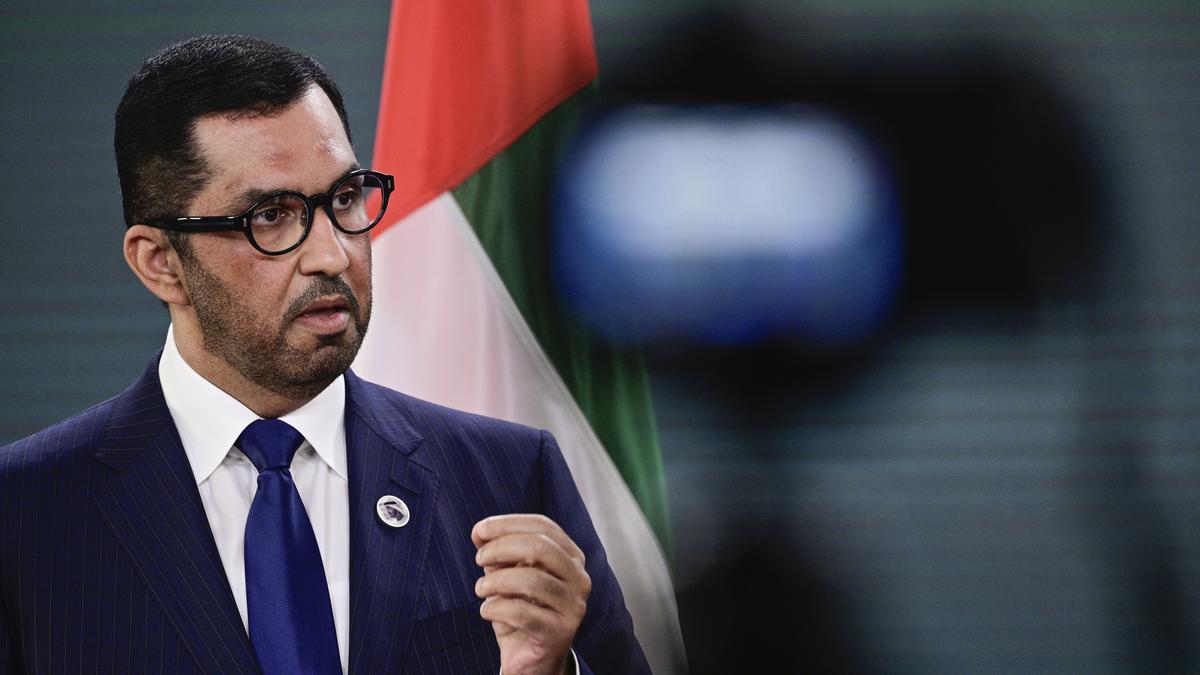
COP28 UAE Presidency | Why are Western lawmakers opposing Sultan Ahmed Al Jaber’s appointment? Premium
The Hindu
The Hindu explores why several U.S. and EU lawmakers are opposing the appointment of UAE oil chief, Sultan Al Jaber, as President of COP28, scheduled to take place in November this year.
The story so far: Almost a week after the United Nations’ crucial climate meetings in Bonne, Germany from June 5 to 15, which are considered the halfway mark to the COP climate summit in November, questions over the COP28 Presidency of United Arab Emirates (UAE) Industry Minister Sultan Ahmed Al Jaber still remain. While the UAE leader did say in Bonne that COP28 was going to be “inclusive” and deliver a “game-changing outcome” to tackle climate change, he did not talk about a concrete plan to phase out fossil fuels or address his links to the fossil fuel industry.
Each year, the host country for the COP summit nominates a president to helm the climate negotiations with almost 200 countries. The UAE announced Mr. Al Jaber, the State oil company CEO, as its pick in January, a move that has faced backlash from Western lawmakers, leaders of some countries, as well as civil society groups.
Notably, more than 130 lawmakers from the United States and the European Parliament last month wrote a letter to European Commission chief Ursula von der Leyen and U.S. President Joe Biden asking them to urge the UAE to withdraw its appointment of Mr. Al Jaber as the COP28 President. They argued that the move could risk undermining the climate negotiations and asked the world leaders to help restore “public faith in the COP process severely jeopardised by having an oil company executive at the helm.”
Mr. Al Jaber, who is the CEO of the Abu Dhabi National Oil Company (ADNOC) since 2016, was appointed as UAE’s Minister of Industry and Advanced Technology in 2020, a new department established that year.
The leader, who has a chemical engineering and economics background, was serving as a Minister of State in the UAE government since 2013. Also in 2020, he was for the second time appointed as the UAE’s special envoy for climate change, a role previously held by him from 2010 to 2016.
The Minister is also serving in a contrasting role, as the Chairman of Masdar, a renewable energy firm in Abu Dhabi, which he helped start in 2006. According to the BBC, Masdar is now active in more than 40 countries and has invested in mainly solar and wind power projects of a total capacity of 15 gigawatts, which it notes, is capable of displacing more than 19 million tonnes of carbon dioxide emissions annually.
In July 2020, Mr. Jaber was also appointed Chairman of the Emirates Development Bank, which according to his Ministry’s website, provides financial services for the sustainable economic and social development of the UAE.













